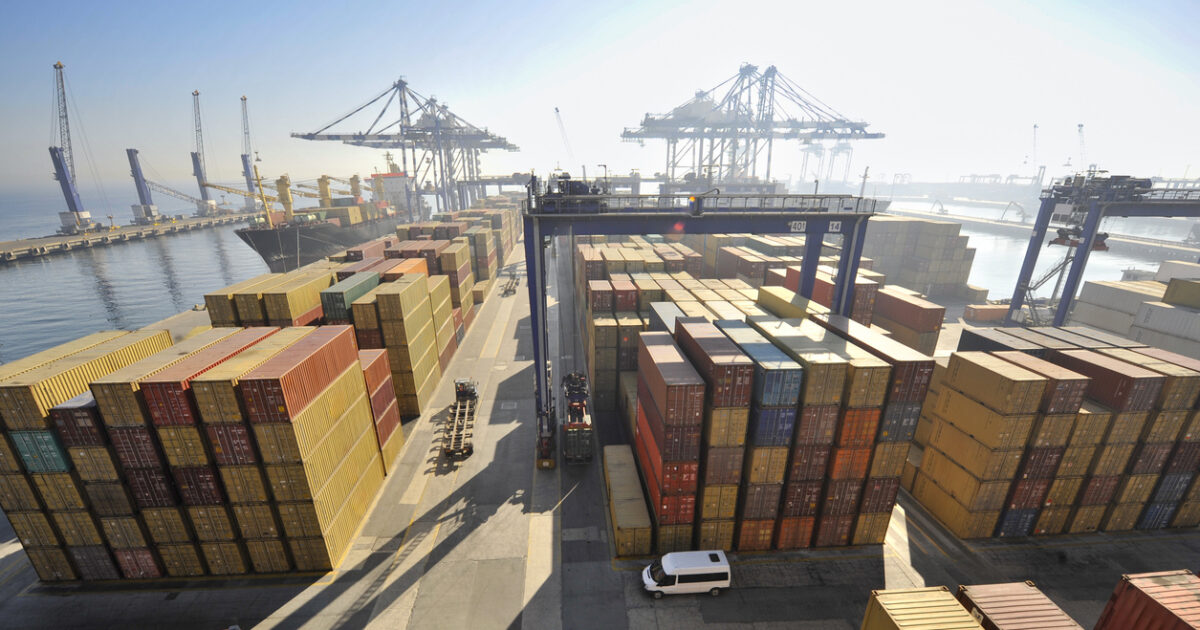In the counterattack, it seems that the European Union spends even more (EU), seeking not only to protect its physical and electronic commerce, but also to respond to the strategic conflict with Chinawhile increasing its tax revenues. At yesterday’s (13.11.25) ECOFIN meeting, EU finance ministers agreed to scrap the €150 cap on customs duty exemptions on small consignments from third countries – a measure that mainly targets Chinese platforms – with a transitional system starting in early 2026.
Specifically, the EU officially presents it as a measure to “protect European physical and electronic commerce” and strengthen fair competitiveness. But the bigger picture shows something more: or decision she is yet another episode in the wider EU-China trade warwhich effectively began in October 2024, when the EU imposed high tariffs on Chinese electric cars, and continued with controls by European authorities on imports of Chinese goods at European ports controlled by Beijing (eg “Operation Calypso” in Piraeus in June 2025).
Parcels worth less than 150 euros are currently excluded from paying customs duties to enter the EU. However, a flood of low-value parcels from online platforms such as Shein and Temu is prompting a review of the rules.
However, for value parcels over 150 euros the amount of the fees has not been defined, with the Commission having proposed an end to 2 euros without it being clear when and if it will be imposed.
How is European retail reacting?
The European Federation of Retailers and Wholesalers (EuroCommerce) warned that a variety of different national fees risked undermining the EU’s single market. “Usually the market adjusts… A euro or two won’t really change the appeal of these platforms”the CEO of Poste Italiane, a state-owned company that handles millions of parcels a year, said on Thursday (13.11.25).
The president of the French retail association, Alexandre Bompardwho also heads supermarket group Carrefour, said in July that the €2 charge for low-value parcels was “ridiculous”.
In Germany, Europe’s largest market, the ECOFIN decision was met with mixed feelings. OR Retail Federation (HDE) points out that platforms like Shein and Temu send 400,000 parcels to Germans every day, with a turnover of more than 3 billion euros in 2024raising concerns about unfair competition and poor product quality. Ramona Popp, from the German Consumer Federation (VZBV) it calls for real controls and not token moves. Berlin is pushing for even tighter regulations as it sees Chinese platforms as undermining the EU’s largest and most mature trading system.
In Greece, the president of EBEA, Yiannis Bratakossaw the decision as a decisive step for fair competition and support for healthy businesses. He emphasized that the immediate imposition of duties on small parcels is an important initiative that strengthens the Greek market. He emphasized that EBEA supports any initiative that shields the market from unfair practices and strengthens businesses that operate according to rules, characterizing Greece’s position at ECOFIN “a decisive step” for a modern and clean customs framework.
Similar demands for the abolition of the limit have been expressed by countries such as France, Italy and Spain, stressing that the massive influx of undervalued and dubious quality products from China burdens customs and deprives member states of significant revenue.
MEP Dirk Gottinck warns of an increase in packages before the holidays. The U.S. scrapping of the “de minimis” threshold is increasing pressure in Europe, while countries such as Romania and Italy are considering national fees.
Injection into the Community budget
Whether, how and how much the potential tax of 2 euros – per small parcel – from third countries will affect European trade remains to be seen, but what is certain is that it will have significant revenue benefits for EU coffers. The volume of microparcels entering the EU from China has doubled in 2024, reaching €4.6 billion.
Duties on goods from outside the EU are paid as soon as they enter the Union, with customs officials collecting sums that feed both European and national budgets.
According to the data of the Commission, 75% of customs duties go directly to the EU budget, covering 13.7% of the total budget for 2024. These tariffs are considered “traditional own resources”, as they are a perennial and stable source of European revenue.
In this context, a new tax on small parcels from third countries is expected to further boost EU revenuewhile it is likely to lead to increases in final prices for consumers who buy from platforms like Shein, Temu and other non-EU providers.
